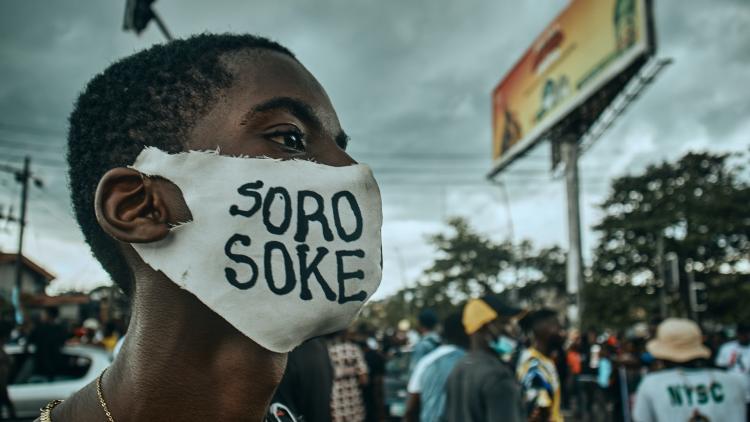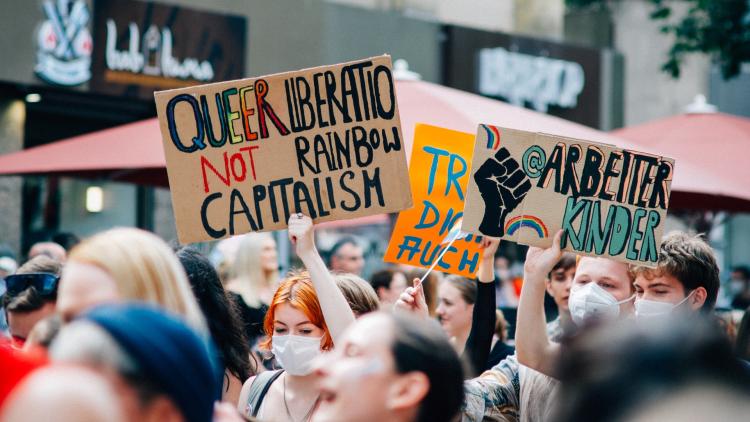Gender and the Law of Peace

Key information
- Status
- Module not running
- Module code
- 15PGNH013
- FHEQ Level
- 7
- Credits
- 15
- Department
- Centre for Gender Studies & School of Law, Gender and Media
Module overview
Students on this module study the post-conflict legal mechanisms governing peacekeeping, peacebuilding, peace agreements, transitional justice and women and peace and security from a gender perspective. Students explore the role of transnational feminist protest, law reform and activism to examine the legal regulation of post-conflict communities and the shift from war to peace.
The module examines how peace is understood within international law and within feminist and gender networks, their overlap and divergences. The module offers an alternative to the study of women, peace and security while also including the study of women's participation in post-conflict spaces, the prosecution on conflict-related sexual violence, the regulation of sexual exploitation and abuse in peacekeeper communities and the role of alternative and local justice mechanisms in the post-conflict 'moment'.
Feminist activism and protest from post-conflict and peacetime states is used to examine how gender and peace are understood within international law, what is silenced and the role of anti-militarism and transnational feminist networks in transforming communities away from conflict.
Objectives and learning outcomes
- To further research on the relationship between gender and post-conflict laws through a teaching and learning experience that connects this to transnational feminist theories and activisms
- To encourage students to research and analyse legal conceptions of security from a gender perspective
- To build the analytical skills of students through encouraging writing that has both theoretical claims and substantive legal claims
- To encourage gender studies research that looks beyond 'women's issues' so as to analyse the role larger social, political and legal conditions play in perpetuating gendered insecurity
- To provide an introduction into legal responses to peace and post-conflict of specific relevance to Asian and African scholars and communities
At the end of the course, a student should be able to:
- Demonstrate an understanding of the themes, issues and debates on the role and impact of gender on peace processes and post-conflict communities
- Identify and compare different feminist approaches to legal reform
- Critically assess the materials and themes explored in the course
- To describe feminist histories of activism and protest in terms of theoretical developments and in terms of legal outcomes relevant to the course themes
- To analyse the consequences of legal reforms that focus on women's rights in post-conflict situations, situating this knowledge with an awareness of broader political and legal approaches
- To formulate and evidence an argument on the relationship between gender, peace processes, post-conflict and law
Workload
- Weekly 2-hour seminar
Scope and syllabus
- Gender law reform on women, peace and security
- Peace agreements
- Peacekeeping
- Peace enforcement and robust peacekeeping
- Peace building and the post conflict space
- Transitional justice
- Feminist protest
- Feminist peace activism
- Peace walk
Method of assessment
- Assignment one (1500 words): 30%
- Assignment two (2000-3000 words): 70%
Suggested reading
- Cohn, Carol, Women and Wars: Contested Histories, Uncertain Futures (London: Polity Press, 2012)
- Duncanson, Claire, Gender and Peacebuilding, Polity, 2016
- Heathcote, Gina, and Otto, Dianne, Rethinking Peacekeeping, Gender Equality and Collective Security (London: Palgrave, 2014)
- Ní Aoláin, Fionnuala, Haynes, Dina and Cahn, Naomi, On the Frontlines: Gender, War and the Post-Conflict Process, OUP, 2011
- O’Rourke, Catherine, Gender Politics in Transitional Justice, Routledge, 2013
Disclaimer
Important notice regarding changes to programmes and modules.



